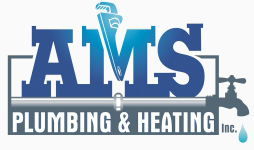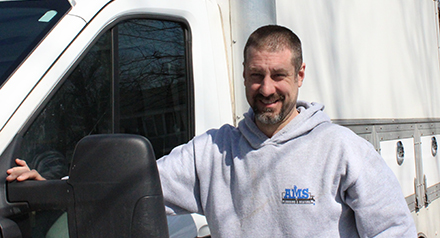
If you have experienced any of these or would like to assure that the water that you drink or bathe in is safe, call us at AMS Plumbing & Heating to test your system and to install the needed water filtration solution.
Ahh, few things are as refreshing and life-sustaining as water. We often take for granted that we’ll have clean, good tasting water on demand at our tap - until we don’t. Some indicators that should alert you to potential problems with the water coming into your home:
- Water that tastes or smells funny
- Reduced water flow or pressure
- Water appliances that become discolored
- Sediment in the water
- Spots appearing on dishes, showers and tubs
It was only 1986 when new homes built in the U.S. mandated lead free pipes for plumbing. Even if the pipes in your house have been upgraded to copper or PVC, the plumbing in your neighborhood could be composed of lead. A significant portion of the United States infrastructure was built between 1880 and 1950, once indoor plumbing began being a feature of American homes at the end of the 19th century into the 20th century.
Too much of this infrastructure is old, increasingly failing and composed with material that would not meet today’s building standards.
CALL US AT AMS PLUMBING & HEATING FOR AN EXPERT REPAIR OR INSTALLATION

Michigan Water Supply
During 2014, in Flint, Michigan the water supply was switched from Lake Huron to the Flint River without the appropriate adjustment in the water treatment. The higher chlorine levels coursing through the old pipes leached the lead resulting in disaster.
The simplest way to think about the water system outside of your home is in terms of supply, treatment and delivery - that is the source, local water standards and pipes. Notwithstanding the source and delivery of water to your home, inside of your home, it is possible to filter the water at either the point-of-entry (whole house) or at the multiple points-of-use (kitchen faucet, bath shower or sink).
Depending on your water supply – municipal or well – there are different issues to safeguard against. The former might have more issues with previous sewage or industrial waste runoff while the latter might have more problems with excessive in-ground sediments (hard water) or chemicals (pesticides).
The Environmental Protection Agency (EPA) requires suppliers to report on community level water quality by stating the levels of contaminants every July through a Consumer Confidence Report (CCR). Many results are posted at epa.gov/safewater. To get specific information about your home, tests have to be conducted at your tap to determine levels of lead, chlorine, iron, sulfides, pesticides and bacteria, among other things.
After determining your home’s water quality, it is time to prioritize aesthetics, space and budget from your water treatment options. Point-of-entry or whole house filters treat water as it enters your house and are suitable for general household use water (washing machines and toilets). Point-of-use filters treat smaller quantities of water meant for drinking or bathing. Prices range from $20 carafes at the point-of-use to $1,000+ sophisticated systems. In between are other choices such as:
- Faucet-mounted
- Under-sink
- Countertop
- Refrigerator line
- Reverse osmosis
Whether you have hard water or are concerned about possible contaminants in your water, call us to find out more about your water filtration options. Schedule an appointment with AMS Plumbing & Heating for a free consultation and expert installation.

